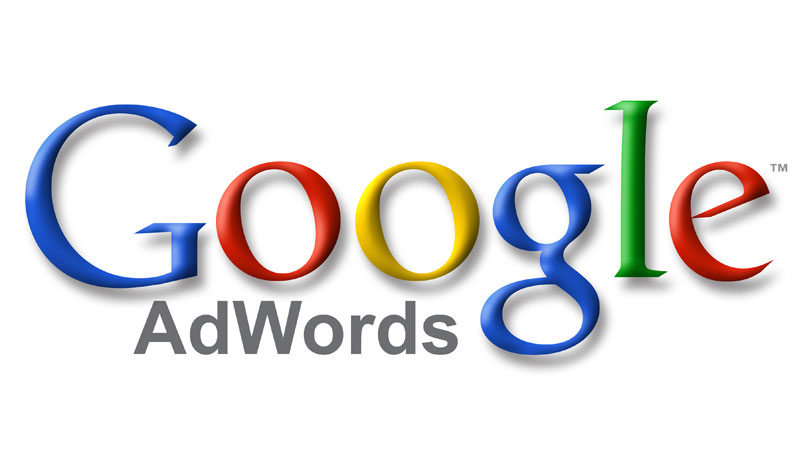
PPC Management: Google Adwords Keyword Match Types
PPC management using Google Adwords is conducted most effectively through the intelligent selection of keyword match types based on how the advantages and disadvantages of each apply to your particular scenario.
It is best to strike a fine balance between casting a wide net and preventing careless spending. The degree to which you configure your campaign for each end of the spectrum depends on your budget, set of keywords, and overall goals.
This blog post will detail the family of keyword match types as well as modifiers offered by Google Adwords and give some examples of how to properly select each.
If you’d like paid search assistance that will increase the ROI of your campaign…Ask for Muskin at WebMechanix (443) 927-7195 – I would be happy to help.We also set up campaigns on Bing/Yahoo
Intro to PPC Keyword Match Types
There are three PPC match types and two associated modifiers featured in Google Adwords. Click the links below for the corresponding section of this post.
Keyword Match Types:
PPC Modifiers:
PPC Match Types for Google Adwords
Broad Match Type
The broad match type is the ‘widest net’ and will generate the most, albeit not necessarily the most qualified, clicks. It is the default and is assigned to the keyword that you input automatically unless otherwise specified.
Broad match type is also referred to as ‘expanded match type’ because it not only instructs your campaign to show ads for the keyword as you entered it, but words and variations that Google considers relevant as well. These additional keywords include synonyms, plurals, mis-spellings, and words that have been deemed to be highly relevant by Google.
Pros of Broad Match Type:
- Shows your ad with the highest frequency possible
- In some cases it targets quality words that you didn’t think of
Cons of Broad Match Type:
- In some cases it targets undesired keywords leading to wasted budget
- It requires more maintenance than other match types
When to use Broad Match Type:
Broad match type is best used when your keyword has no or few different meanings. For example, let’s take the keyword ‘train tracks’ for a company that manufactures tracks for trains.
If they were to use broad match, there is the possibility for their ads to trigger when a user searches ‘train tracking’. This slight variation greatly influences the meaning and now our poor train tracks manufacturer is showing ads amongst those from companies that provide, let’s say, train tracking software.
Even worse, ‘train’ could be interpreted as ‘training’ or ‘trainer’ at which point the train manufacture is now competing with personal trainers/dog trainers/you get the picture.
To account for this there are modifiers which we will cover later.
Phrase Match Type – “PPC Management”
Phrase match type is a much tighter option and is my favorite personally. It allows you to maintain control over the keywords that trigger your ads while also accounting for the closest variations, search inquiries which include your keyword as submitted in the same order with additional words before or after.
For example, ads for “PPC Management” will trigger for queries such as ‘the best ppc management’ or ‘ppc management techniques for winners’. At the same time, it will trigger for a search query such as ‘free ppc management’ which may not be in your best interest.
You can manually select from broad to phrase match type or simply put your keyword in quotes (i.e. “PPC Management”)
Pros of Phrase Match Type:
- Only search queries which include your precise keyword will trigger your ads
- Google is far less likely to show your ad for an unwanted term
Cons of Phrase Match Type:
- Sometimes a word before or after your keyword can drastically alter the meaning and thus the audience targeted
- It requires some degree of maintenance
When to Use Phrase Match Type:
Phrase match types are great for maintaining control of when your ads will trigger. They eliminate the possibility of Google mis-interpreting your keyword and charging you for unwanted search queries.
The fact that phrase match type allows for variations that include your keyword within is an added bonus.
Exact Match Type – [PPC Management]
The exact match type is the most straight forward to understand and offers the highest possible degree of control. Ads for keywords that are configured as exact matches will only show for that precise keyword. If there is anything before or after the keyword then ads will not trigger.
You can manually select from broad to exact match type or simply put your keyword in brackets (i.e. [PPC Management])
Pros of Exact Match Type:
- There is no possibility whatsoever that your ad will trigger for any search queries which differ from your precise keyword
- You are completely in control
Cons of Exact Match Type:
- You run the risk of tremendously reducing the number of people that see your ad
- Far more keywords must be manually entered to reach the entirety of your audience
When to Use Exact Match Type:
Exact match type should be reserved for situations where your keyword can be easily mis-interpreted due to multiple meanings. This is because there are other means by which we can prevent unwanted variations from triggering your ads, modifiers.
PPC Modifiers for Google Adwords
Negative Keywords: -free
Negative keywords are simply words that should never be included in a search query that triggers your ads. Essentially, anything that absolutely changes the meaning of your keyword or reduces the quality of the audience you aim to serve.
The example in the headline above is the word ‘free’. Let’s take the phrase match “PPC Management” for example. Unless we are giving away the service for free, then we protect ourselves from unwanted clicks by making ‘free’ a negative keyword.
Negative keywords can be configured manually or by preceding them with a minus symbol (-) upon submission. Wield them wisely as often times they can make or break the overall effectiveness of a campaign.
Broad Match Modifiers: +software
If you are going to roll with the broad match type, even if you’ve used negatives, it may be wise to mark parts of your keyword with the broad match modifier.
The broad match modifier is assigned by preceding the portion of interest with the plus symbol (+) upon submission.
As an example, lets compare ‘medical software’ to ‘medical +software’. The word software could be considered a synonym for the word program if there is no + before software. If the search query is ‘medical computer programs’ this may not be an issue. Conversely if the search query is ‘medical program’, then there may be a problem as the searcher could mean a course for doctors. Applying the broad match modifier to software decreases the likelihood of confusion.
Similar to negatives, wise use of this match modifier will greatly benefit your campaign.
PPC Management Services – WebMechanix
Managing a PPC campaign effecively involves more than properly assigning match types and good use of modifiers. There are loads of options and add-ons that can help your campaign such as sitelinks, phone extensions, location extensions, shopping extensions, geography selections, targeting by time of day, targeting by day of the week, targeting by demographic, and all types of budgeting options. Things can become a bit complicated and awfully time consuming without help.
If you’d like paid search assistance that will increase the ROI of your campaign…Ask for Muskin at WebMechanix (443) 927-7195I would be happy to take your campaign from good to great!
Most newsletters suck...
So while we technically have to call this a daily newsletter so people know what it is, it's anything but.
You won't find any 'industry standards' or 'guru best practices' here - only the real stuff that actually moves the needle.







